Every foreigner in Japan has various reasons for staying, such as continuing their studies, working, or marrying a Japanese person. For those who are staying temporarily, both short and medium term, they need to have a residence card.
Especially if you want to live in Japan. Once you have obtained your visa and landed safely, what is the first step you should take when you arrive in Japan? The first thing you need to think about when you start your trip to Japan after receiving your visa is the Japanese Residence Card.
In Japanese, it is called a Zairyu card. With this card, a person can legally live in Japan because they have received permission from the immigration authorities. Of course, if you want to live in Japan, you have to go through many administrative procedures. These are needed important documents that you must obtain to live in Japan.
Moreover, these documents require the most important first, which is a residence card. You could say that the zairyu card is a temporary ID card while you are in Japan. Therefore, once you have it, you must take good care of it. It can’t be lost or lent to someone else. In this article, we will comprehensively discuss things related to the card.
In addition, if you are currently looking for information on how to get a student visa, please read the following article as a guide:
Read Also:
How to Live in Tokyo with the Cheapest Costs?
What are the Best Cities to Live in Japan?
15 Pros and Cons of Living in Japan
Okay, now! Let’s dive deeper to spend your happy time in Japan!
Contents
1. What is Residence Card or Zairyu Card in Japan?
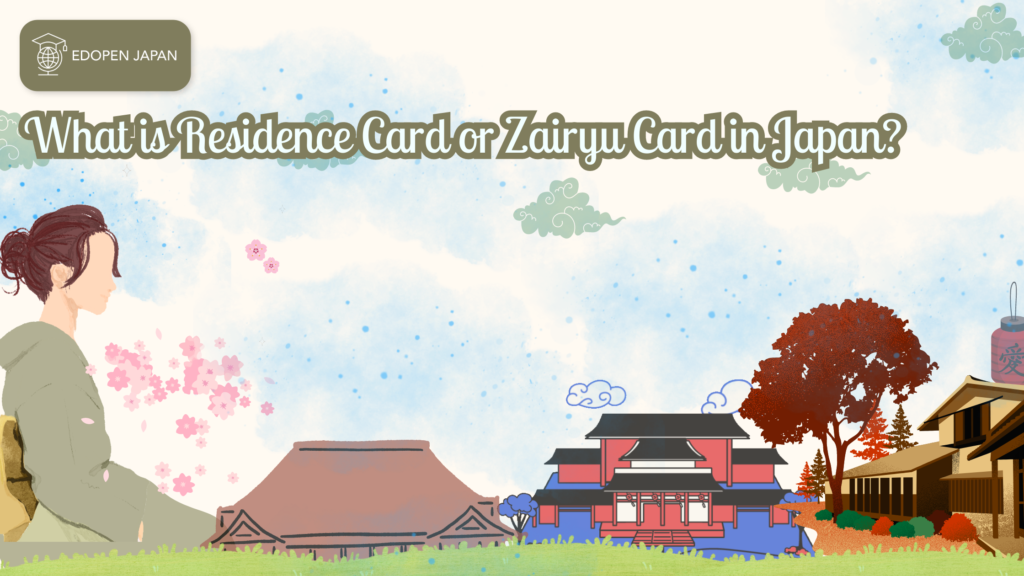
The short explanation of Residence Card (Zairyu Card; 在留カード) is an identity card for non-Japanese residents in Japan, and is issued by the Ministry of Justice (Hohmusho 法務省). Zairyu Card; 在留カード is an embedded IC chip that replaced the previous Alien Registration Card (gaikokujin-toroku-shomeisho) on July 9, 2012.
This card is required to be held by most long-term residents who are citizens of a country other than Japan when they are granted permission to stay in Japan, such as when they are granted landing permission, permission to change their residence status, permission to extend their period of stay, and so on.
It is also required that a resident carry this card with him at all times to prove his resident status. It doesn’t matter what purpose you are in Japan for. This card contains information such as your name, surname, date of birth, nationality and address. You can also check your visa status, expiration date, and a record of your activities while in Japan.
2. How to Obtain the Japanese Residence Card?
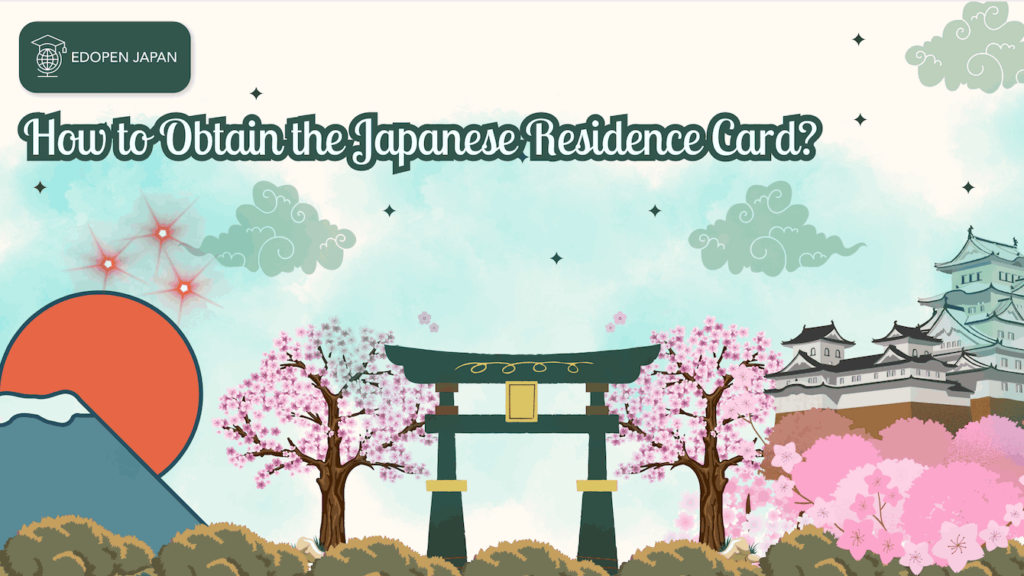
Obtaining a Japanese Residence Card and the requirements for a Japanese Residence Card in Japan are very simple and can be completed upon arrival at a Japanese airport. If you arrive in Japan from one of the following international airports: Narita, Haneda, Kansai or Chubu, a residence card (Zairyu card) will be issued to you directly upon your arrival.
The fingerprint and photo are taken and the card is ejected. The Zairyu card has all the important information printed on the front of the card as well as on the IC chip inside the card. your detailed information will be recorded on the Japanese Residence Card.
Then, after you receive it. Within 14 days of settling in your new place of residence, you must go to the local municipal office with your passport and Zairyu card. The office will ask for your new Japanese address, which will be entered into the database and printed on the back of your Zairyu Card. If you change your address, you will be asked to go to the mayor’s office again.
3. Required Documents

Not everyone could get a Zairyu card. Only people with special interests and goals can have it, such as students, workers, apprentices, someone who is married to a Japanese citizen, or children who have Japanese ancestors.
If it’s just for tourism, then they can’t apply for this card. When applying, one must prepare several required documents. This is mandatory in order to meet the administrative requirements. These documents are
- Certificate of Eligibility (CoE) issued by the Japanese Immigration Bureau as proof that a person can enter Japan for the purpose for which he or she is applying.
- Application Form
- Revue stamps 4,000 yen
- Photograph
- Valid Passport
- Other supporting documents, such as student certificates when in Japan for school, employment certificates, etc.
4. How Important is a Japanese Residence Card?
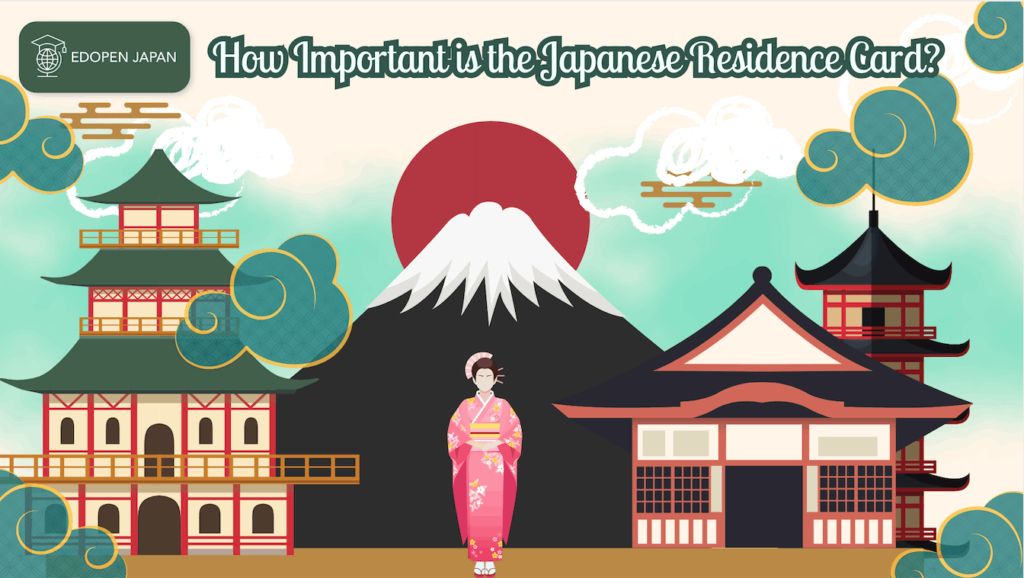
Human beings cannot be separated from mistakes and forgetfulness. So don’t be surprised if sometimes there are cases of losing the Zairyu ka-do. You should keep in mind that this Zairyu ka-do is a mandatory card that every foreign student staying in Japan for more than 90 days must have. If you don’t have this card or the temporary documents, you will be in trouble.
The benefits of the Japan Residence Card include opening a bank account, renting an apartment, subscribing to a telephone package, and obtaining basic health insurance. You should carry it with you at all times so that you can show it at identity checks. If you don’t, you can be fined up to JPY 200,000 and, in the most serious cases, sentenced to one year in prison.
It may seem complicated, but once you get a Zairyu card in Japan and register your details at the nearest municipal office, your life in Japan will be easier and it will help to make your life in Japan easier.
5. What to Do If Your Japanese Residence Permit is Lost or Stolen

If your residence card is lost or stolen in Japan, you must report it to the police (as theft) and then apply for a new card. The police will direct you to the nearest immigration office. You must then go to the nearest immigration office with your passport as your primary identification.
In addition, after following the process and cross-checking from the immigration to the police station. You will be given a replacement card. However, it should be noted that. You may be asked to write a short description (in Japanese) explaining how your card was lost or stolen. Ask a Japanese friend or relative to prepare this for you if you don’t know how to write Japanese.
This is where you will need to learn the woven language before you leave for Japan, as very few Japanese are fluent in English, at least you will be able to speak for daily needs or administrative purposes.
If your zairyu card is lost or stolen overseas, you must apply for a replacement at the nearest immigration office within 14 days of your return to Japan. An airline may ask to see your zairyu card before flying back to Japan.
Ask your friends or relatives to file a “Re-entry Deadline Certification Application” (sai-nyu-koku-kyoka-kigen-shomeisho) at the immigration office and send it to you by email or fax. Your partner will be your representative and will fill in all the detailed information required by the Immigration Bureau in Japan.
6. Renewal of Japan Residence Card
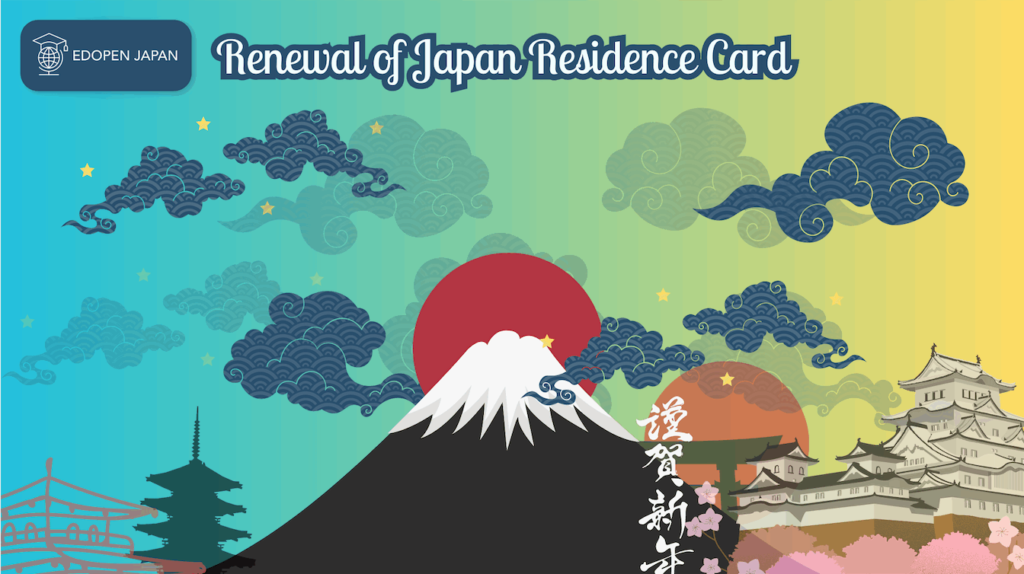
Most residency statuses allow you to stay in Japan for a period ranging from three months to five years. If your residence permit in Japan has expired and you wish to stay longer, you must apply for an extension at the Immigration Bureau in Japan before the expiration date of your current residence permit.
The application process is relatively simple, provided you still meet the requirements for certain residency statuses. It usually takes a few days or weeks to process an application, during which time you may remain in Japan even if your previous residence permit has temporarily expired.
You must renew it within 30 days of the expiration date printed on the card after 5-7 years. 7 years for permanent residents and 5 years for spouses or children of Japanese citizens, persons with employment status as “Engineer”, “Humanities/International Service Specialist”, etc. Excludes “Entertainer” and “Technical Intern Training”. More details moving into this website:
The Japanese Residence Card or Zairyu Card Picture
The following is the front view of the Japan Residence Card or Zairyu Card.
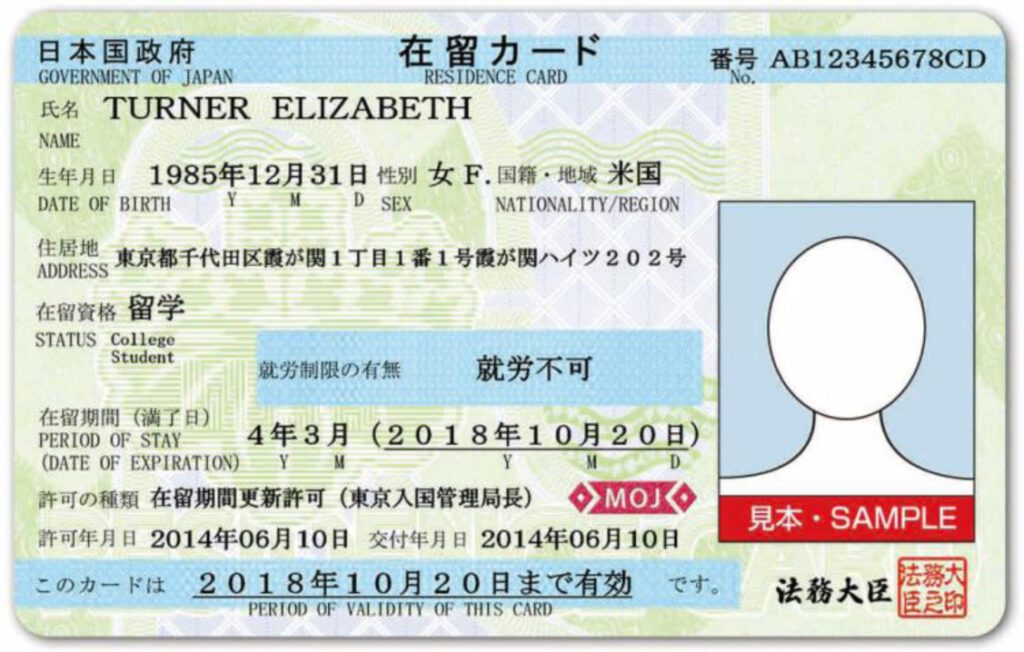
In addition, the back image is as follows:
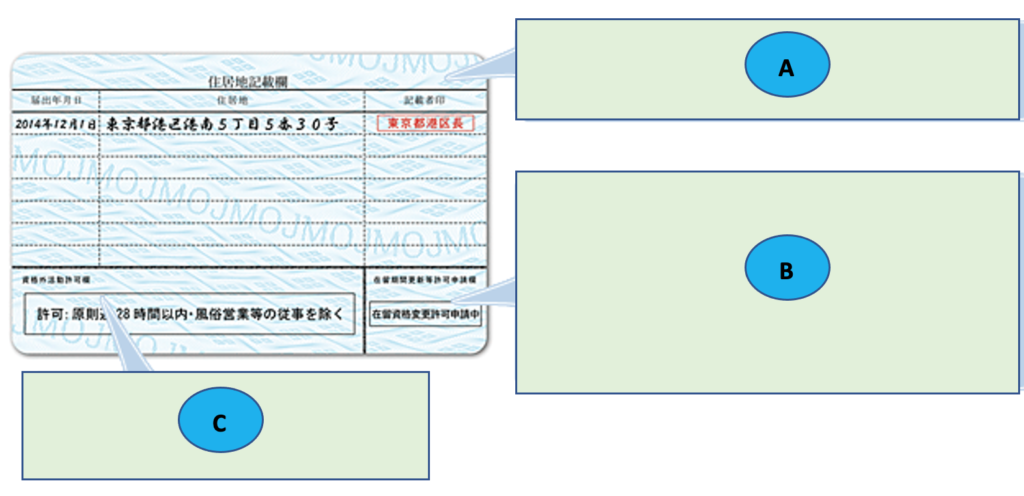
- The part A will be written as the new address after you move. Please always report your address to the nearest county or city clerk’s office..
- The part B indicates when the application for extension of stay or application for change of residence status will be processed.
- Part C shows authorization details when authorization is granted to perform activities other than those authorized by the previously granted residency status.
The Additional Key Informations

Zairyu Card is an official card that allows a person to live in Japan for a long period of time. The importance of the Zairyu Card is similar to that of your passport. In this card, the information listed is a photo, personal identity, original nationality, address and in Japan, status and type of residence permit, card number and expiration date, which are extremely confidential for you. Considering the importance and privacy of this information, here’s what to look out for when you have a Zairyu card:
1. Must Always Have on Hand
As a foreigner in Japan, you should remember to take your Zairyu card with you wherever you go. Japanese immigration officers occasionally conduct random checks on foreigners on the street. In order not to be considered an illegal person, show this card to the officer. But remember, do not show the Zairyu card carelessly before the officer shows his identity.
2. Never Lend It to Anyone Else
Do not lend this card to anyone for any reason. This includes family members. Such acts are considered criminal in Japan. Besides, taking good care of it can prevent someone from misusing Zairyu cards. The worst risk could be getting into trouble with the law later.
3. Report the Loss SUPER ASAP and Immediately Create a New
In fact, sometimes there are things you don’t want to happen. If someone loses a Zairyu card, they must report it immediately and make a new one. The time to get a new card is about 14 business days. If you miss the deadline, you can be fined 200,000 yen and even go to jail.
4. Report Change of Address to City Hall
When you receive your Zairyu card, make sure that the address on the card matches your current address in Japan. If you change your address, you must report it immediately to the local city hall. The official will replace the address on the card with the new address so that the information is official and accurate.
5. Report to Immigration If You Change Your Identity
All changes must be reported to the local government. In addition to reporting to the Town Hall, changes in information must also be reported to the Immigration Department. This change must be reported to the local immigration office within 14 business days.
Summary
- If you live in Japan, the Zairyu Card is your lifetime card.
- Please carefully remember and watch your Japan Residence Card expiration date and renew it in time.
- Never lend it or even show it to anyone except person in charge of certain office such as ward, city, municipal, etc., and carefully remember and watch what they do with your Residence Card.

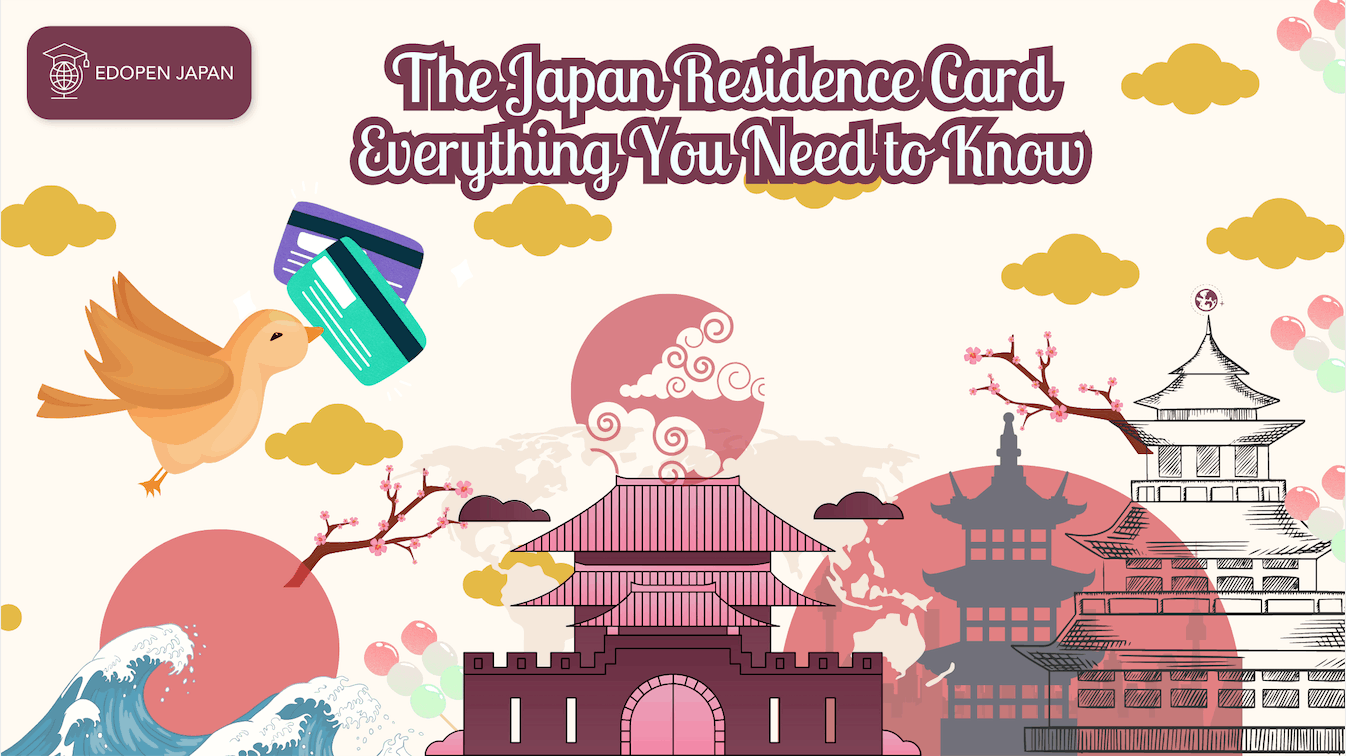








Leave a Reply